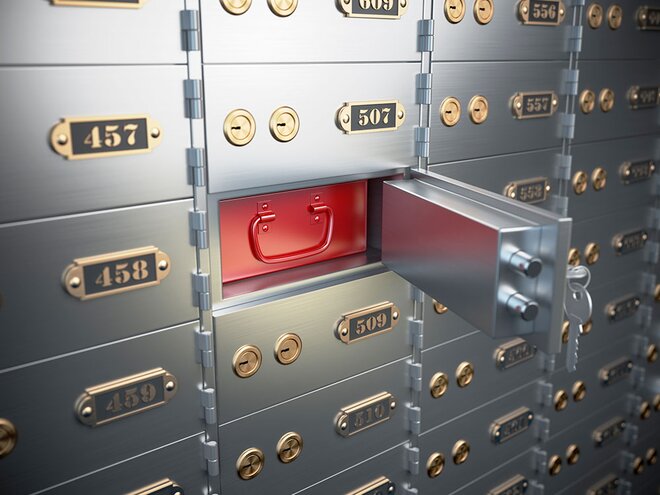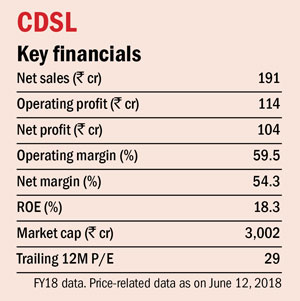
Depository services, like NSDL and CDSL, provide electronic storage for securities such as shares. Earlier companies issued share certificates to their investors, which many times were lost or destroyed. With depository services, one can conveniently store one's securities electronically, which ensures safety and ease of transaction. CDSL is the only depository-services provider listed on the Indian markets.

To ensure transparency in the financial system, the Ministry of Corporate Affairs has proposed mandatory dematerialisation of all unlisted companies. Depositories, like CDSL, will be the key beneficiaries of this.
The promoters of CDSL include BSE, State Bank of India, Bank of India, Bank of Baroda, HDFC Bank, Standard Chartered Bank, Canara Bank, Union Bank of India, among others.
As of May 31, the total number of investor accounts with CDSL stood at 1,51,75,433.
The business model
Here are the various fees and charges that depository services levy, along with their additional sources of income:
Annual issuer charges: Depositories charge companies an annual maintenance fee based on the number of folios or the size of paid-up capital. This is more like an annuity business, which does not have any cyclicality since the amount of revenues from this are fixed.
Transaction charges: Depositories charge fees from 'beneficial owners' (individual investors) when they sell shares. They also charge 'depository participants' (intermediaries like brokers) annual maintenance and settlement fees.
KYC and e-insurance: Depositories offer know-your-client (KYC) services to banks, brokers, mutual funds, insurance companies and other institutions. They also act as a holder of insurance policies of various companies, for which it charges them.
Corporate actions: Companies also have to pay depositories in case of any corporate event like initial public offers, bonus issues, stock splits, change in shareholding, mergers and acquisitions, etc.
E-voting and e-CAS: Depositories provide an option to companies to allow their shareholders to cast their votes electronically. It also sends electronic consolidated account statement (e-CAS) to investors monthly.
Investment income: Depositories also generate income from their investments in fixed deposits, equity shares and debt securities.
Others: CDSL has also recently forayed into providing services related to recording of GST filings and various documents like academic records and warehouse receipts.
This article is part of a series on how to assess new business models.
